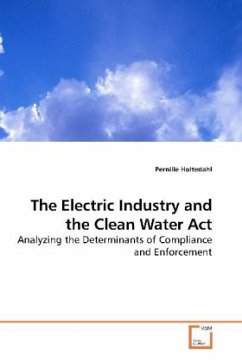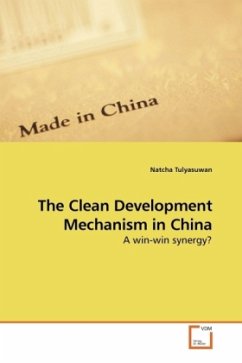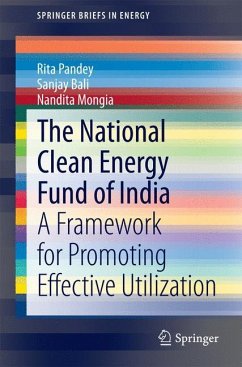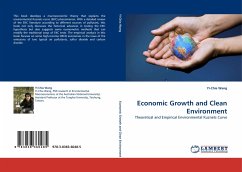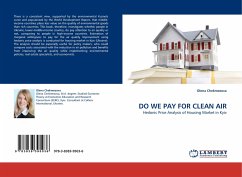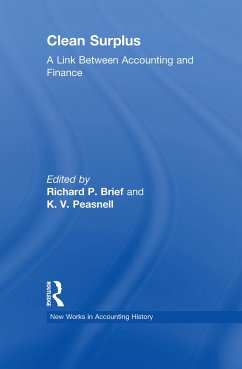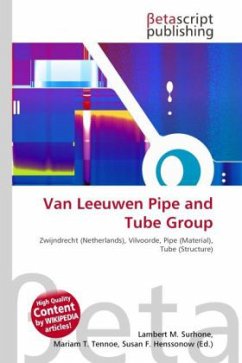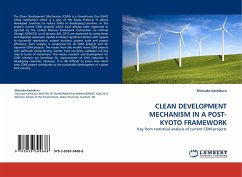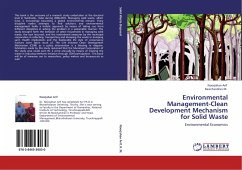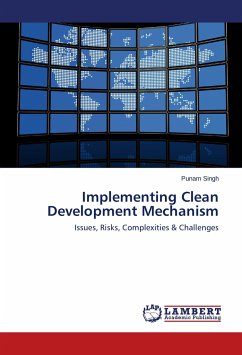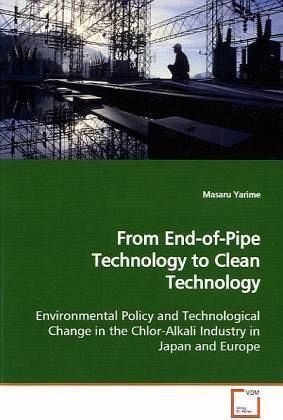
From End-of-Pipe Technology to Clean Technology
Environmental Policy and Technological Change in the Chlor-Alkali Industry in Japan and Europe
Versandkostenfrei!
Versandfertig in 6-10 Tagen
52,99 €
inkl. MwSt.

PAYBACK Punkte
26 °P sammeln!
The intensive industrial development, while producingnumerous useful products, has been increasinglyinterfering with the limited capacities ofecosystems. Various environmental policies havebeen introduced to reduce emissions. While there is aserious concern about negative impacts of tightenedregulations on industry, theycould actually enhance industrial competitiveness byencouraging innovation in the long run. This booksheds a fresh light on this debate by closely examiningthe interaction between environmental policy andtechnological change in the chlor-alkali industry inJapan and Europe. Weak...
The intensive industrial development, while producing
numerous useful products, has been increasingly
interfering with the limited capacities of
ecosystems. Various environmental policies have
been introduced to reduce emissions. While there is a
serious concern about negative impacts of tightened
regulations on industry, they
could actually enhance industrial competitiveness by
encouraging innovation in the long run. This book
sheds a fresh light on this debate by closely examining
the interaction between environmental policy and
technological change in the chlor-alkali industry in
Japan and Europe. Weak regulations promote
end-of-pipe technological solutions, which would
function to prolong the life of existing, often
obsolescent, production processes. Excessively
stringent regulations, in contrast, while forcing
clean technological options, could induce
premature decisions on inferior technologies.
Institutional designs for public-private
collaboration will be important in fostering
innovation for the best clean technologies. The
analysis should be useful to corporate managers and
policy makers for strategic decision makings in a
transition towards a sustainable society.
numerous useful products, has been increasingly
interfering with the limited capacities of
ecosystems. Various environmental policies have
been introduced to reduce emissions. While there is a
serious concern about negative impacts of tightened
regulations on industry, they
could actually enhance industrial competitiveness by
encouraging innovation in the long run. This book
sheds a fresh light on this debate by closely examining
the interaction between environmental policy and
technological change in the chlor-alkali industry in
Japan and Europe. Weak regulations promote
end-of-pipe technological solutions, which would
function to prolong the life of existing, often
obsolescent, production processes. Excessively
stringent regulations, in contrast, while forcing
clean technological options, could induce
premature decisions on inferior technologies.
Institutional designs for public-private
collaboration will be important in fostering
innovation for the best clean technologies. The
analysis should be useful to corporate managers and
policy makers for strategic decision makings in a
transition towards a sustainable society.



